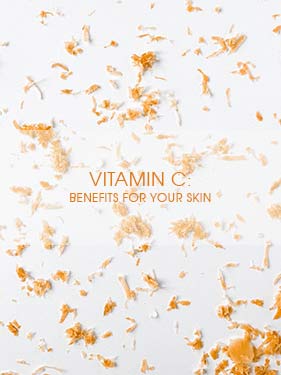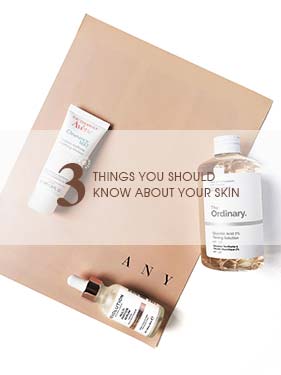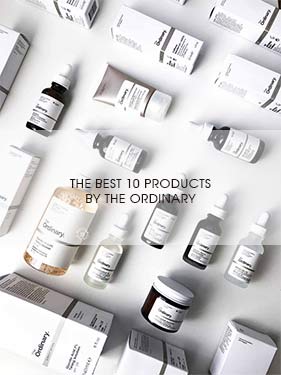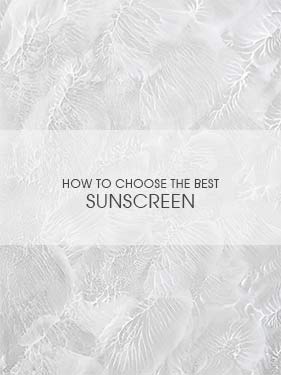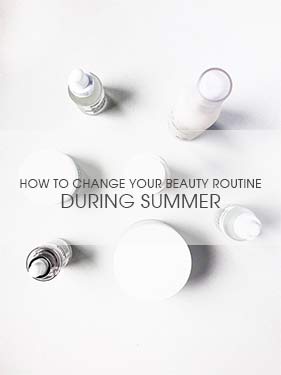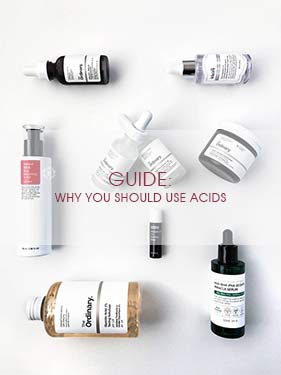Is your skin irritated? Do you experience redness, flushing or itching sensation? It’s time to adapt your skincare routines to help your skin rebalance itself. If you want to know what cosmetics you should use (and which to stop using), this guide is what you need to read today. Help your skin with me!
Hello hello! Today I am going to talk about one of the most common skin issues: irritation. It is something that we are used to, we have all suffered it at some point and it is always annoying (to a greater or lesser extent). Do you want to know what is irritation and how to prevent it? Keep reading!
Specifically, the topics that I will cover in this article are the following:
1. WHAT IS IRRITATION?
Irritation or inflammation is the most common dermatological problem (and if you have sensitive skin you will be especially familiar with it. When we talk about irritation we are speaking about a very wide range of skin problems that may happen because of a wide variety of causes: ultraviolet radiation, allergens, friction (as in shaving) potentially irritating substances (such as perfumes and essential oils), etc.
When a stimulus irritates us, what happens is that our skin produces a series of proteins (cytokines and chemokines) that activate other molecules that promote inflammation, either through increased vasodilation (which causes redness) or activating nerve receptors (those responsible for the burning sensation and itching that we usually associate with irritation). In addition to this, when this response to the original stimulus is initiated, a chain reaction occurs, generating more inflammatory proteins, as well as free radicals and other enzymes that give rise to an amplified response. In this way, a small stimulus can cause a large reaction in our skin in the form of irritation, especially the longer the duration of exposure to that stimulus and its intensity and concentration.
Irritation can take two forms: it can be acute or chronic. When irritation is acute, we suffer it for a short period of time (hours or even days), but if it occurs chronically (and we suffer it for very long periods of time) it can be much more bothersome and uncomfortable, as in the case of rosacea, eczema or certain forms of dermatitis.
Surely you can identify irritation, but just in case I would like to highlight that some common signs that you may notice are redness, dryness, cracked or lumpy skin, etc. and you may feel burning, itching, or other uncomfortable sensations.
And why am I telling you about irritation? Firstly, because irritated skin means a weakened skin barrier, and that means that the products you use are not as effective and that your skin is more vulnerable to other damage. In addition, it must be remembered that regular irritation promotes the appearance of signs of aging, so if we prevent irritation we also help delay the aging of our skin.
2. COMMON CAUSES OF IRRITATION.
As I mentioned, there are many different stimuli that can cause irritation to our skin. Below I will talk about some of the most common causes so that you can identify, in case your skin is irritated, what is the possible cause. Of course, if irritation is a common problem for you (if it occurs chronically) or if the problem is especially bothersome, it is very important that you immediately go to your doctor, since he will be able to evaluate your case and advise you about the best treatments for you.
A possible cause of irritation is allergy. In this case, the cellular mechanisms that cause inflammation are different, since we go through a sensitization process in which exposure to what causes us allergy (our allergen) makes it cause inflammation. Whether it is because of a medicine, a cosmetic, a plant, some kind of airborne particle or anything else that has come into contact with your skin, if an allergic reaction occurs, it is especially important that you contact your doctor, since your may experience a much larger response than simple skin irritation.
Another very common cause of irritation is waxing and shaving. Regardless of the form of hair removal you use (be it wax, razor, laser, etc.), your skin will most likely be irritated afterwards. In the case of hair removal, this is because the skin barrier is weakened by the pulling of the wax and the burns of the laser. On the other hand, when we shave, it is the friction of the blade against the surface of our skin that exfoliates it (and sometimes over-exfoliates or even cuts us), giving rise to that irritation of our skin. Regarding hair removal and shaving, I want to make a brief mention that, in addition to this irritation, sometimes the wounds they produce can lead to skin spots (what is known as post-inflammatory hyperpigmentation or PIH, about which you can read more here), so you should be especially careful about them.
As I said at the beginning of the article (and I have already mentioned it on other occasions on the blog) there are certain ingredients that are potentially irritating, such as certain forms of alcohol or perfumes and essential oils, among others. These ingredients are very common in our cosmetics, but some of them are expendable (especially in the case of perfumes and essential oils, which simply add a scent to cosmetics). I am aware that a cosmetic with a good fragrance can be very pleasant, but in the end that scent gives you nothing but a brief sensation that you will not remember later, while the possible irritation of perfumes and essential oils will be much more durable, so I prefer to avoid them as much as possible, although there are products that contain them and I like them.
Separate mention deserves the irritation due to the combination of ingredients. There are certain ingredients that are potentially irritating and that can especially sensitize our skin but that give us very effective results if we use them correctly. When used in isolation they may not lead to irritation, but if you use more than one of these products in the same routine, that effect can be multiplied, which leads to a higher risk of irritation and inflammation. This is one of the reasons why it is advisable not to combine exfoliating acids with each other or with retinoids and vitamin C. Often, when it is advised not to combine certain ingredients with each other, it is not because there is an incompatibility between them (although this also happens), but because the combination of several powerful ingredients can excessively weaken our skin, causing damage that will take time to be restored.
The last of these common causes of irritation that I want to mention is ultraviolet radiation. In many other articles I have told you about the damage that it can cause on our skin and its relationship with melanoma. In fact, there is a link between chronic irritation from ultraviolet radiation and skin cancer. In addition, ultraviolet radiation emitted by the sun is the main cause of skin aging. What happens when we expose ourselves to it without protecting ourselves adequately? In addition to exposing ourselves to the problems I have mentioned, it is very easy for our skin to become irritated, as happens when we burn after a whole day in the sun without using sunscreen correctly.
Remember that irritation does not always appear instantly. Sometimes a few days may pass between the contact of your skin with what sensitizes it and its inflammation. For this reason it is especially important to acquire tolerance to the most powerful ingredients in our skincare routines, since otherwise we can cause cumulative irritation and increase the damage to our skin.
3. HOW CAN YOU PREVENT AND TREAT IRRITATION.
Now that you know what skin irritation is, how it happens and what are some of its most common causes, you may be wondering what you can do to prevent it (or, in case your skin has already been irritated, to treat it).
Although it may seem obvious, the most important thing to do to treat irritation is to avoid contact with what caused it. If you don’t know what caused the irritation, you should be especially careful.
I have already told you about the skin barrier, that emulsion of water and oil that makes up the most superficial layer of our epidermis and that gives us the first line of defense against the environment. Irritated skin means an imbalance in the skin barrier, so it is important that we try to return it to normal, since if this imbalance continues we may experience other problems, such as pimples, blemishes, etc. In addition, long-term irritation promotes skin aging, so it is advisable to do everything that we can to prevent it.
The first measure we can take to prevent irritation from using cosmetics is to regularly do a patch test. This tolerance test allows us to find out if a cosmetic can be irritating, so doing it before incorporating new cosmetics into our skincare routine can help us avoid more than one problem.
In addition to this, it is essential that you have a skincare routine that’s adapted to your particular skin concerns. Sometimes we think that using all the products we have on hand is the best solution for us, but it is better to start with a basic skincare routine of cleansing, moisturizing and sunscreen and then add other specific products that help us address our main concerns. With this basic routine we will not just keep our skin clean, nourished and protected against ultraviolet radiation, but we will also help maintain the balance of our skin.
I have already told you about exfoliating acids, and it is especially important that we avoid abusing powerful ingredients like them (and retinoids and vitamin C as well). These kinds of powerful ingredients can be great to help us keep our skin healthy and to help prevent aging and improve certain skin concerns. However, as with everything in this life, balance is the key to achieving the best possible result, since by abusing them it is very easy to irritate our skin and this leads to more serious problems (such as chemical burns).
What if despite doing all this your skin is irritated? You may have followed all these recommendations (or not) and your skin still became irritated, what solutions are there? If your skin irritation is severe, it is essential that you immediately see your doctor, as this can lead to more serious issues and it is very important that you act from the first moment.
In any case, before an already irritated skin there are certain measures that you can take, adjusting your skincare routines to help your skin regain its balance. The first step you should take is to simplify your beauty routine as much as possible, using a mild cleanser, a nourishing moisturizer and a good sunscreen (preferably one with physical filters). When faced with irritated skin, you should not focus on improving your skin concerns, since you will not get results until your skin recovers its balance.
In my article on sensitive skin I have included several tips that you can follow to try to restore your inflamed skin. There are several ingredients that may be convenient for you due to their soothing properties, such as ceramides, fatty acids, cholesterol, coenzyme Q10, resveratrol and niacinamide, which you may find in this serum from The Ordinary, available on DECIEM (recommended), on Amazon and on FeelUnique and this one from Paula’s Choice. Using products that incorporate these ingredients in your simplified routine will help you improve inflammation. A good moisturizer that you may want to use is the Paula’s Choice Omega+ Moisturizer, available on Amazon, on Paula’s Choice and on FeelUnique.
If your skin has become irritated, don’t be in a hurry to recover. The skin needs our patience and perseverance to achieve good results. I want to insist that if you observe that the inflammation is not reduced, you should immediately go to your doctor, since you may need to be prescribed a specific treatment for your case.
Do you experience irritation often? When do you usually experience this irritation? Is there any advice that is especially helpful to you to prevent or improve it? Tell me in the comments section!
If you liked this article and want to continue learning to take better care of your skin, these other posts will surely interest you:
Do you want to learn to take better care of your skin? You can see an index of all my informative posts here.
● Follow me on Instagram, Facebook, TikTok and Pinterest.
● Share, comment and like my posts on social media.
● Shop through my links to help me keep up with this blog.

I’m Nacho and I’m passionate about skincare. I really enjoy learning and sharing my knowledge about skincare and I read scientific papers so you don’t have to. I want to break stereotypes because I believe skincare has no gender: skin is skin.


